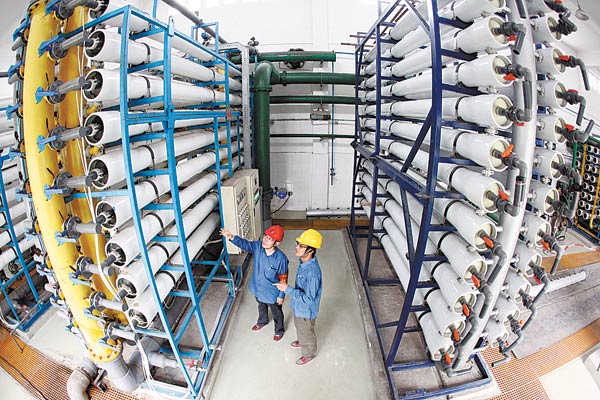Fuel powers economic surge
|
 China has been taking the lead in mapping out a blueprint for a sustainable future built on coal. [Photo / Provided to China Daily]
|
Cleaner technology crucial component of nation's urbanization drive
Clean Coal is the global path out of poverty for the 1.3 billion people who have no electricity whatsoever and another 2.3 billion who have inadequate access to power. China is the prime example of the benefits of increased electricity from coal. The socioeconomic progress of China over the past several decades is the most important societal achievement of our time - and coal is the cornerstone of that growth.
Improvements in health and the standard of living have been so profound that the International Energy Agency has referred to China as a coal-fueled "economic miracle." In fact, 80 percent of the global population taken out of poverty since 1990 is Chinese - all living in a nation which obtains more than 75 percent of its electricity from coal.
Consider a few facts. Since 1990, coal-based electricity in China has increased 650 percent to over 3,500 billion kilowatt hours. During the same period, lie expectancy increased by five years, infant mortality declined 60 percent and 600 million more people attained access to an improved water source. Maternal mortality rates dropped 65 percent and female literacy increased 35 percent. Widespread access to electricity has been attained, allowing families to light their homes, refrigerate food and medicine and reduce indoor air pollution through more efficient means of cooking. In the meantime, real GDP per capita increased over seven times and poverty decreased by literally hundreds of millions. China's score on the UN Human Development Index now surpasses the world average.
Declining emissions
Amid these dramatic increases in the quality of life through coal-based generation, relative emissions from power plants have declined steadily. Discharge of particulate matter per unit of electricity has decreased 97 percent over the past three decades. Since 2005, relative emissions of sulfur dioxide have decreased 64 percent. Given the smaller coal units slated to be retired, desulfurization will soon be in place at virtually every coal plant in China. Relative nitrous oxide emissions decreased 8 percent in the past year alone. And reduced mercury emissions are a significant co-benefit of these new controls.

























